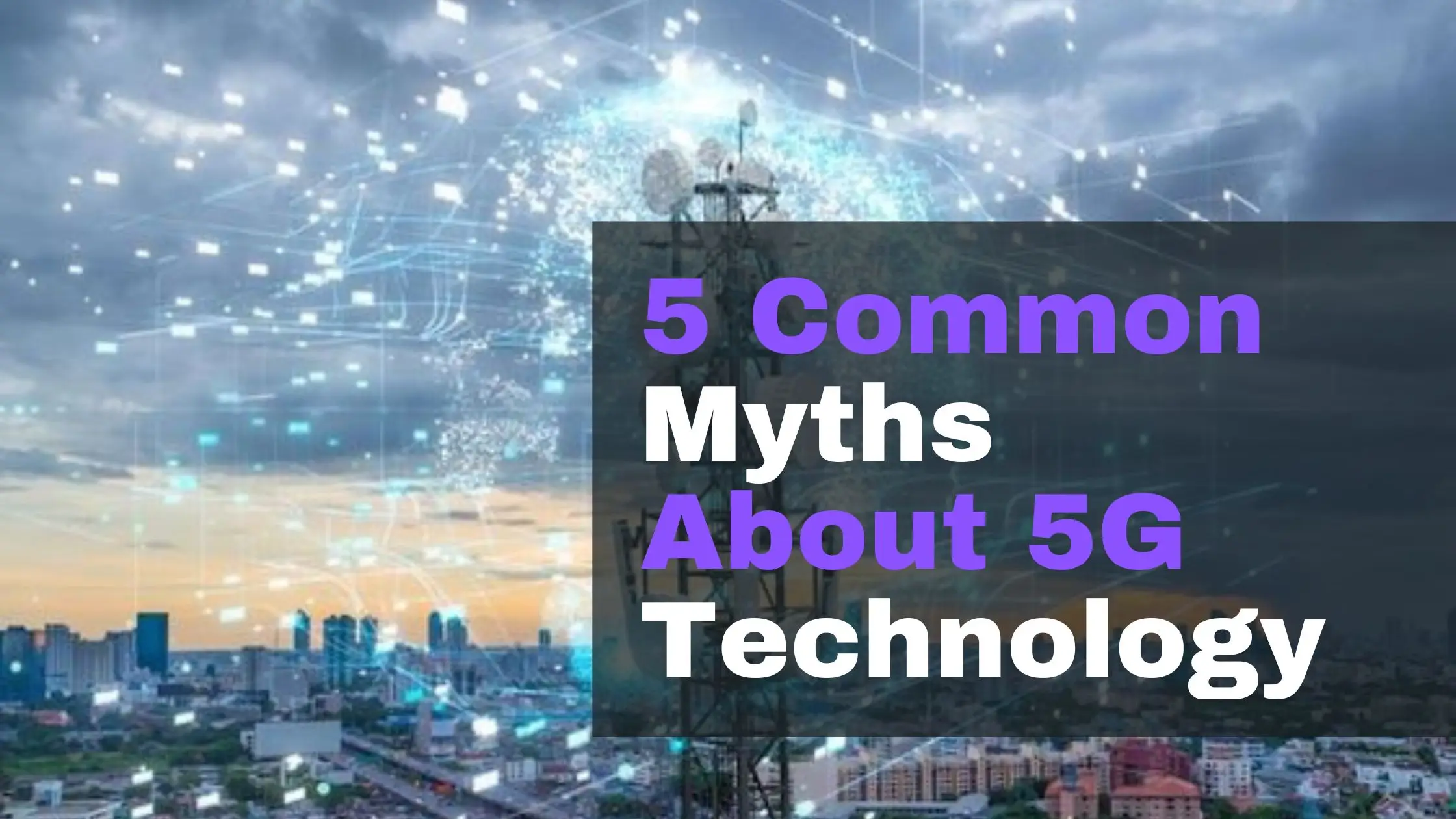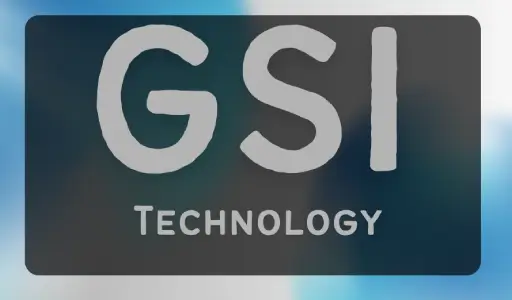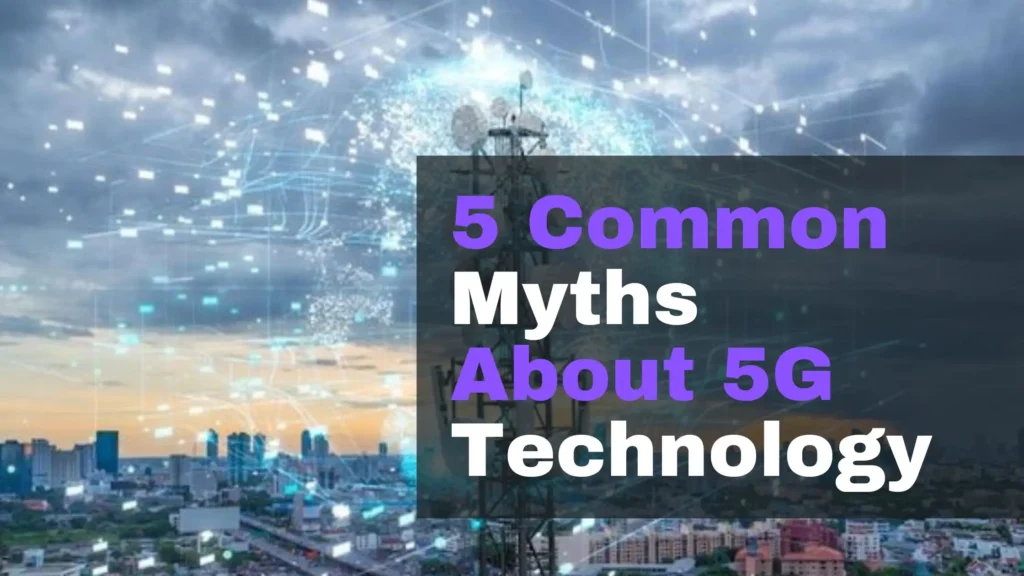
The future of Debunking Common Myths About 5G Technology is promising, with advancements in connectivity, speed, and capacity. It will enable faster download and upload speeds, reduced latency, and support for more connected devices. This will revolutionize various industries like healthcare, transportation, and entertainment, enabling innovative applications such as autonomous vehicles, remote surgeries, and immersive virtual reality experiences. 5G technology has the potential to transform our lives and drive digital innovation in the coming years.
Introduction to Debunking Common Myths About 5G Technology
Ah, the hype around 5G technology is real! But what exactly is this buzz all about? 5G, the fifth generation of cellular technology, promises lightning-fast internet speeds, lower latency, and the ability to connect more devices simultaneously.
1: 5G Causes Health Issues
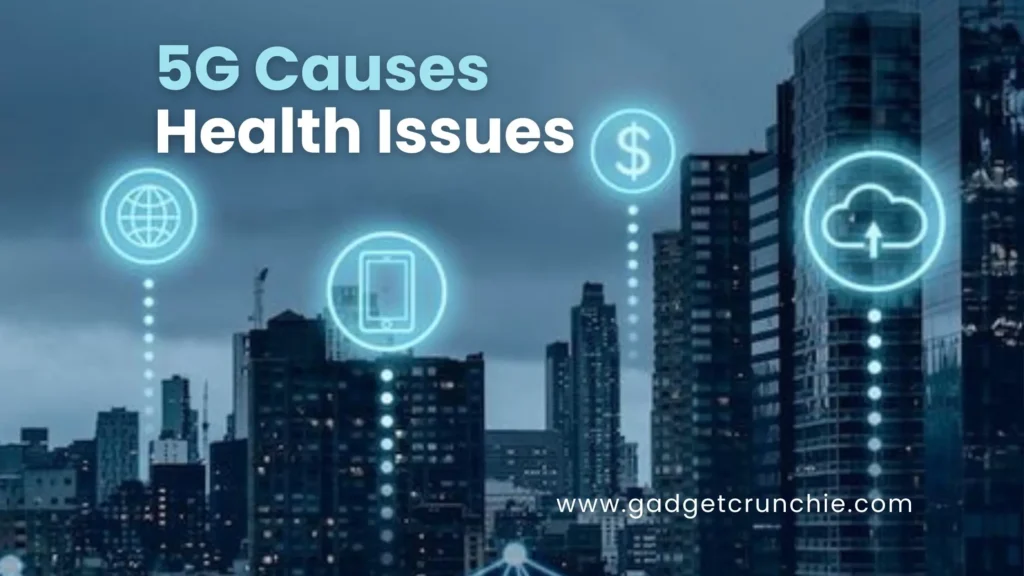
Understanding Radiation Levels in 5G
Let’s talk radiation – not the superhero kind, unfortunately. 5G uses non-ionizing radiation, which is similar to what’s used in Wi-Fi and Bluetooth. The levels are well below international safety guidelines, so no need to break out the tin foil hats.
Research on the Health Effects of 5G
Despite the conspiracy theories, research so far has not found any solid evidence linking 5G to health issues. So, you can keep scrolling through those cat videos without worrying about growing a third arm.
2: 5G Technology Causes Cancer
Examining the Link Between 5G and Cancer
Let’s nip this myth in the bud. There is currently no credible scientific evidence to support the idea that 5G technology causes cancer. Your phone might give you FOMO, but not cancer.
Expert Insights on 5G and Cancer Risks
Experts in the field agree that the energy from 5G waves is too low to damage cells and cause cancer. So, go ahead, embrace the faster speeds without worrying about your Netflix binge causing a tumor.
3: 5G Network is a Surveillance Tool
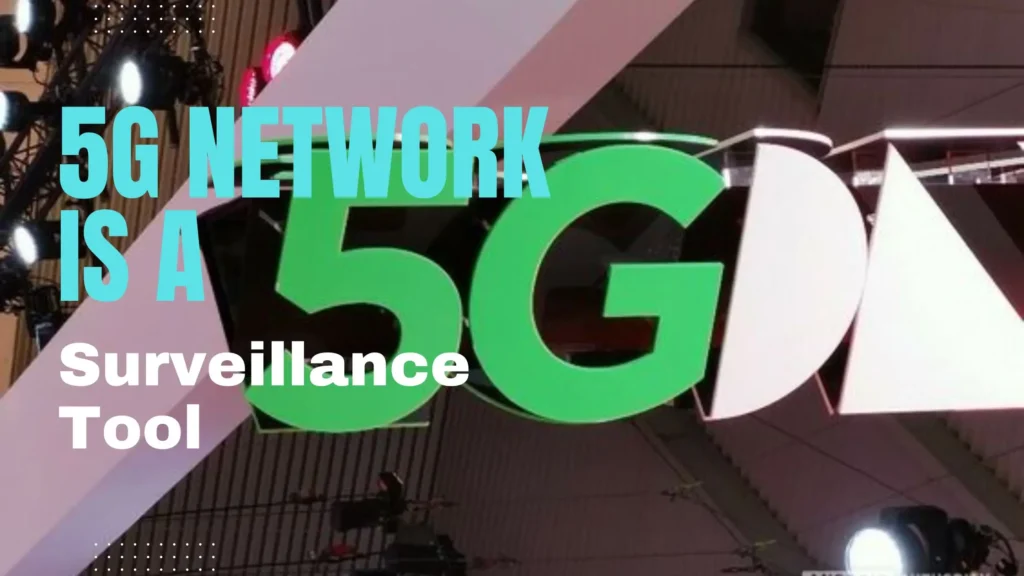
Separating Fact from Fiction: 5G and Surveillance
Is Big Brother watching you through 5G towers? Not quite. While data privacy is always a concern, 5G technology itself is not designed for spying on your late-night snack choices.
Privacy Concerns and 5G Technology
Yes, there are legitimate privacy concerns with any new technology, but blaming 5G for all surveillance issues is like blaming your toaster for burning your toast – a bit of a stretch. Stay cautious, but don’t lose sleep over 5G spying on your avocado toast habits.
4: 5G is Responsible for the Spread of COVID-19
Dispelling Misinformation: 5G and COVID-19 Connection
Rumors linking 5G technology to the spread of COVID-19 have circulated widely, but let’s set the record straight. There is absolutely no scientific evidence to support the claim that 5G networks are responsible for the transmission of the coronavirus.
The Role of 5G Technology During the Pandemic
5G technology has played a crucial role during the pandemic by enabling faster and more reliable communication networks. From supporting remote work and online learning to facilitating telehealth services, 5G has proven to be an asset in keeping people connected and businesses running smoothly.
5: 5G Technology is Harmful to the Environment
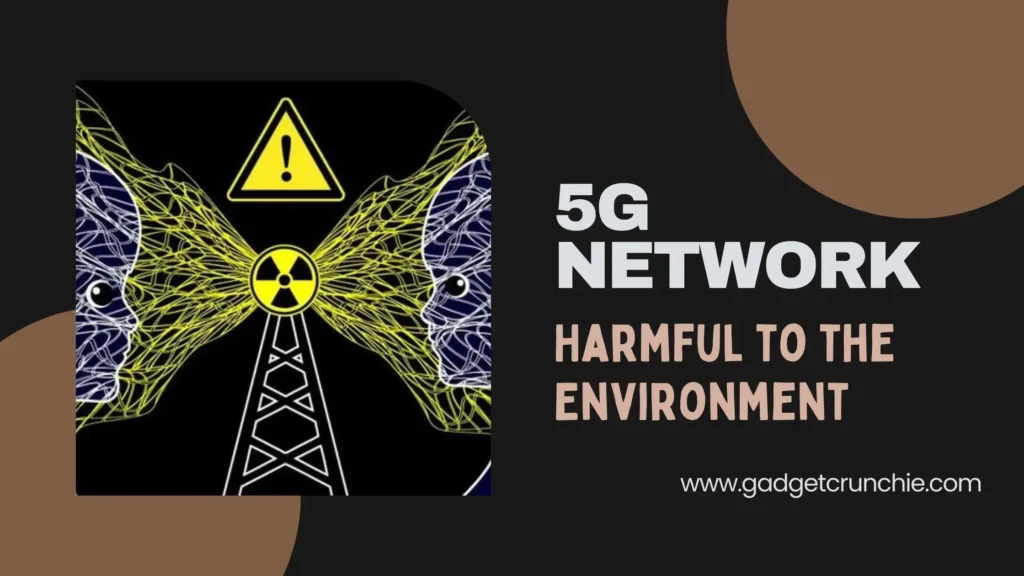
Assessing the Environmental Impact of 5G
Concerns about the environmental impact of 5G technology are valid, but it’s essential to separate fact from fiction. While the deployment of 5G infrastructure may have some environmental implications, such as energy consumption and disposal of electronic waste, efforts are being made to minimize these effects through sustainable practices.
Sustainability Efforts in 5G Development
Many companies involved in the development of 5G technology are investing in eco-friendly initiatives, such as using renewable energy sources and designing more energy-efficient devices. By prioritizing sustainability, the industry is striving to mitigate the environmental footprint of 5G technology.
Debunking the Myths: Scientific Evidence and Expert Opinions
Reviewing Studies on 5G and Health Risks
Numerous scientific studies have been conducted to assess the potential health risks of 5G technology, and the consensus among experts is that 5G is safe for human exposure. The electromagnetic frequencies used in 5G networks fall well below international safety guidelines, making concerns about adverse health effects unfounded.
Expert Perspectives on the Safety of 5G Technology
Leading experts in the field of telecommunications and public health have affirmed the safety of 5G technology based on current scientific knowledge. It’s important to rely on credible sources and expert opinions when evaluating the safety and impact of new technologies like 5G.
Conclusion: The Future of 5G Technology
Benefits and Advancements of 5G Technology
As we look ahead, the potential benefits of 5G technology are vast, ranging from faster internet speeds and improved connectivity to enabling innovations in areas like autonomous vehicles and smart cities. Embracing 5G opens up a world of possibilities for enhancing communication and driving technological progress.
Moving Forward with Accurate Information on 5G
To fully harness the potential of 5G technology, it is crucial to dispel myths and misinformation surrounding its safety and impact. By staying informed with reliable sources and trusting in scientific evidence, we can embrace the future of connectivity with confidence and clarity. In conclusion, debunking the common myths about 5G technology is crucial in fostering informed discussions and decisions regarding its adoption and integration into our daily lives. By relying on scientific evidence and expert insights, we can dispel misinformation and embrace the potential benefits that 5G technology offers. Moving forward, it is essential to approach discussions about 5G with a critical eye, ensuring that accurate information guides our understanding of this transformative technology.

